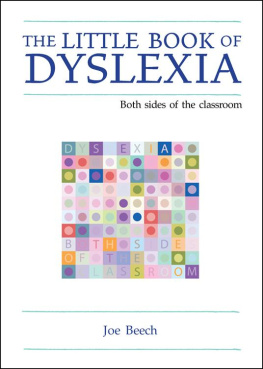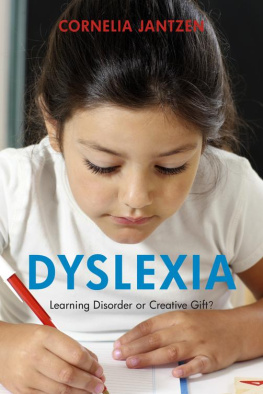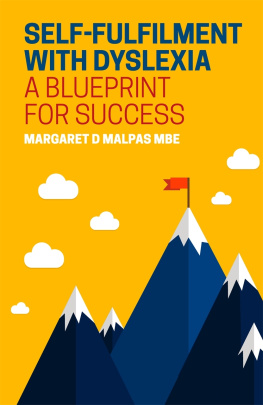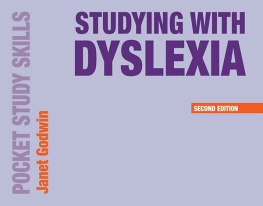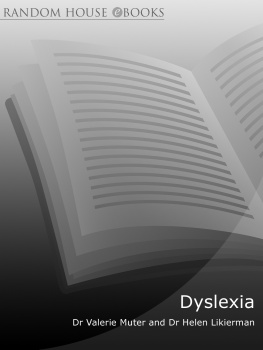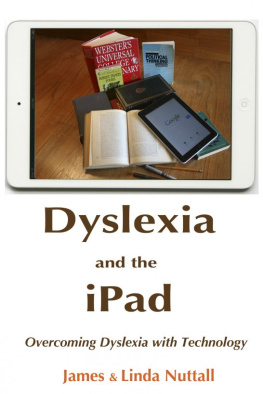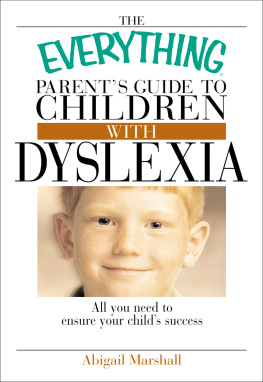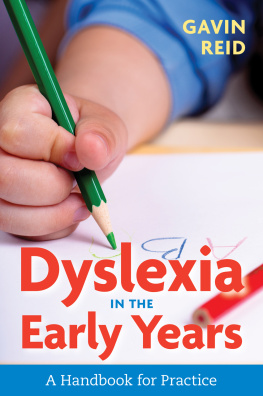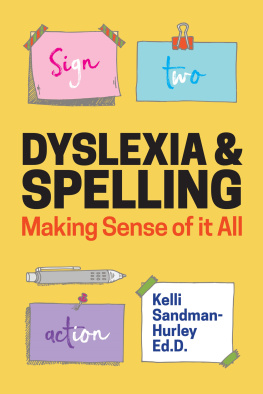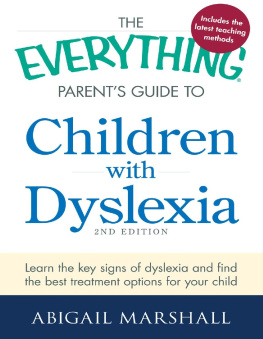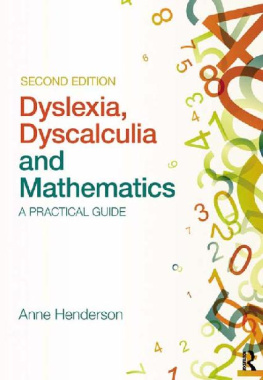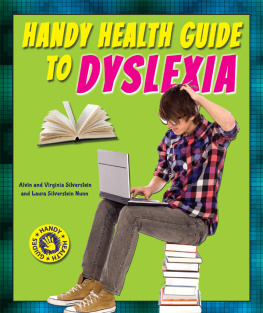Praise for The Little Book of Dyslexia
Any parent of a child diagnosed with dyslexia would find this book excellent in that it is written by someone who really knows how that impacts. I love the human touch in Joes style of writing . Would I buy this as a parent of a dyslexic person? Absolutely!
Andrew Massey, Fox In The Box Consulting Ltd
The Little Book of Dyslexia is easily accessible, written in an almost informal and chatty way which makes the reader want to read on. The mix of fact and anecdote is timely and appropriate. The human element of the book is its strongest selling point the author knows what it is like to be dyslexic and how it impacts on everyday life and the use of humour (often at the authors expense!) is very apt, especially when describing situations/faux pas that can easily be made.
The book will appeal to trainee teachers, newly qualified teachers and practitioners across all phases of education. It will also prove to be a practical guide for all parents on how to cope with a child who has dyslexia, and also some reassurance that a diagnosis of dyslexia is not life-inhibiting.
Debbie Coslett, Chief Executive Officer,
The Hayesbrook School Academy Trust
This may be a little book but it is about a big subject and has great heart and a penetrating mind. It is a very useful book that is as much about the whole issue of learning as it is about dyslexia .
Joe Beech combines his personal story, a succinct account of the theory and research associated with dyslexia and a significant degree of practical recommendations that cannot fail to be of immense use to everyone who has experience of dyslexia as subject, parent or teacher.
The way Joe tells his own story endears him to his readers and commands human attention to this most human of challenges both in terms of learning in our social and educational systems and in terms of how we should regard a specific group of learners , numbering over two million people in this country alone. He charts his own experience from early childhood through to his expereinces in higher education a story of obstacles surmounted and how those obstacles could and should be significantly reduced by those who manage learning systems.
The first five chapters introduce the reader to the subject itself, explaining the potential genetic origins of dyslexia and the questions it raises about the way that we think about learning and some of the many obstacles there are to learning within our social and educational systems. The three chapters dealing with the period of early years through to secondary school help us to get inside the mind of a child experiencing dyslexia and the typical response of the system to such a child. The system includes teachers and parents in particular, for it is the personal response of the adults whom the child encounters that can profoundly influence whether learning for a child experiencing dyslexia becomes a pathway among many possible pathways, or a steep incline with ever-growing obstacles to be cleared in an increasingly isolating climate.
Joe charts the story with a light touch in which he offers us insights laced with humour and occasional irony as he helps us to understand how this particular challenge to learning can be effectively managed. His inference that we need to know our ACBs (deliberately a little ironic) Assessment, Classroom practice and Behaviour so that adults, particularly teachers and parents, can help move the learning of children with dyslexia forward and themselves develop a useful and practical level of understanding, has a powerful impact on the reader. He demystifies the subject, making it immediately accessible to anyone who wants to understand it and respond to it.
In spite of the plain and very accessible writing on the subject and its intensely practical nature, this is a book founded on thorough and rigorous research, From the earliest chapter he finds simple ways of explaining and illustrating what the printed environment might look like through dyslexic eyes, even with a spell-checker on the computer to hand (or eye).
The illustrations are particularly evocative and somehow create a feeling of empathy towards the person, young or more mature, working out how to manage this distinctive set of challenges.
One very serious point about this book is that it explores aspects of learning in general. What is written about dyslexia is applicable to all aspects of what we have come to call special needs; and what we can learn from thinking about meeting special needs applies to the whole potenitally vexed question of how all of us learn. To read this book is to further deepen ones understanding of learning. To understand dyslexia and how to manage it is to grasp more about the management of learning for all children and indeed all adults. That is perhaps the most remarkable thing about this little yet very big book.
Or perhaps there is one other thing that is most remarkable. It is that it is an example of amor vincit omnia. Joes story is one of being loved and of loving the key ingredients of how he has come thus far in his life managing challenges that are that bit steeper than those which we normally face. It is clear that this is due in no small part to the love he has experienced especially from his family. Equally he approaches the subject in a loving way love for those like him who have engaged with this particular challenge, love of learning, love that he shows through the insights he shares in the book, and the love which has drawn him to a career in education himself something he hints that many people find remarkable.
This is a must-read not only for anyone who has met dyslexia in their own approach to learning or in a child or childern they know but for anyone who has an interest in learning and how it is best facilitated, whoever the learner might be. If you are interested in learning and being a more effective learner on a personal level, read this book.
Roger Pask, education leadership and management consultant, facilitator and coach
Joe Beech is going to be an outstanding teacher. He is currently at the University of Chichester studying to be a PE teacher in secondary school. He is also the author of The Little Book of Dyslexia. This book is a very welcome addition to the library of books on dyslexia because it offers a personal account allied to a teachers perspective. Even in these relatively enlightened days, not many people are both dyslexic and a teacher.
Joe Beech grew up in Kent where the 11 plus was still in operation so while his brother went off to grammar school, he went to a mixed high school. This had some key advantages. The school taught touch typing, which Joe acknowledges as one of the most valuable skills that he possesses. While so many books focus on endless spelling and phonics practice, The Little Book of Dyslexia is a breath of fresh air when it comes to the practical uses of technology to support the dyslexic learner. Beech talks about mind mapping, dictaphones, e-readers, smartphones and all the panoply of technology in your back pocket.
Joe Beechs experiences have informed his approach to his new career. It is worth buying this book for the chapter on teaching alone. There is a wealth of practical tips: Do a lesson plan as a flow chart instead of in the conventional way so you can see exactly where you are and where you are going.
The best resource available to you in any classroom is the pupils themselves, says Joe. If you can implement a system in which the pupils cover most of the organisation, half of the work is done for you! He suggests building on the ideas used in The Apprentice and setting up a system where pupils take on roles as Project Manager, Resource Manager, Team Motivator, the Accountant who is responsible for rewards and the Coach/Mentor who also acts as assessor. Not only does this motivate young people but it also prepares them for the world of work, too.
Next page
